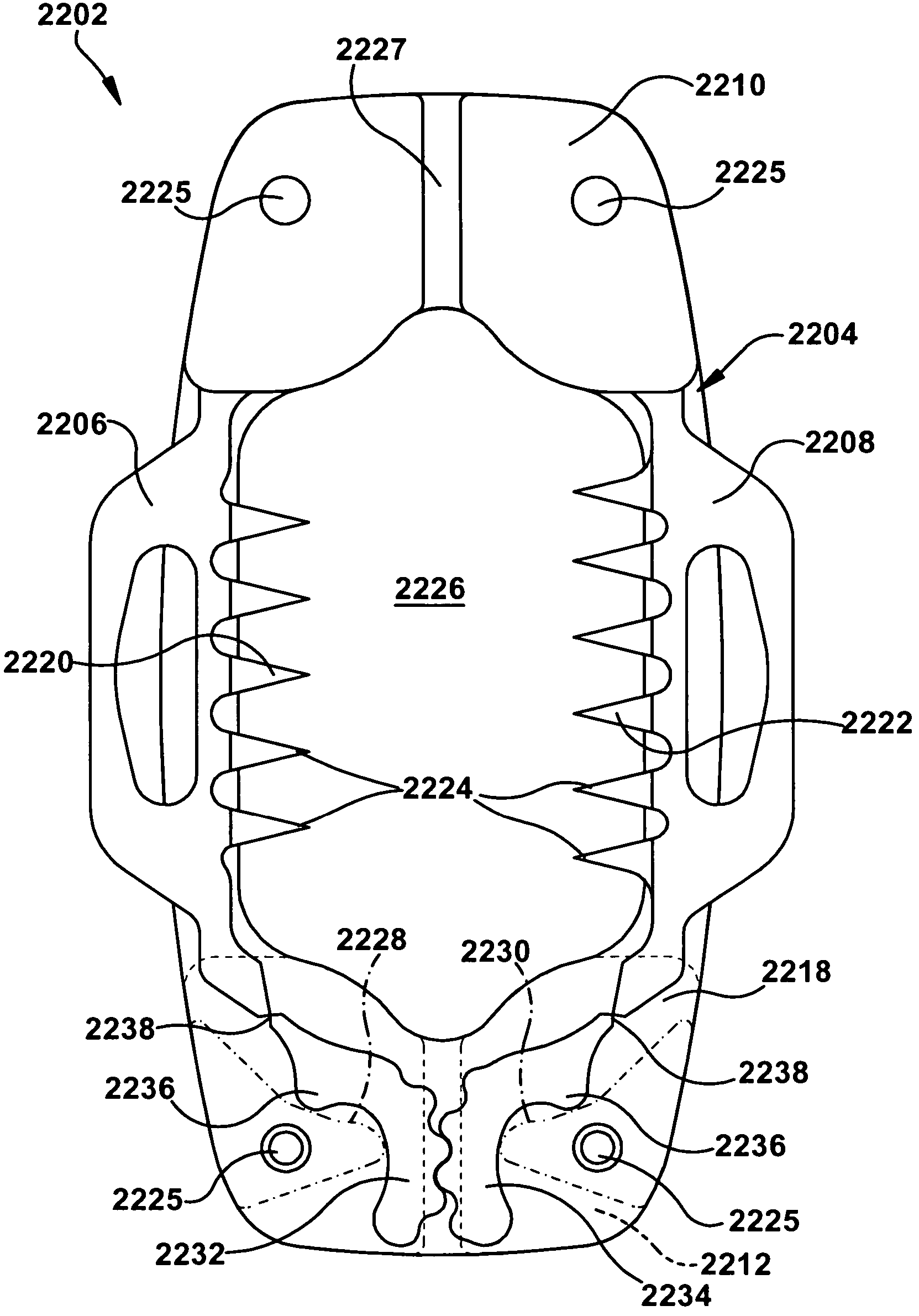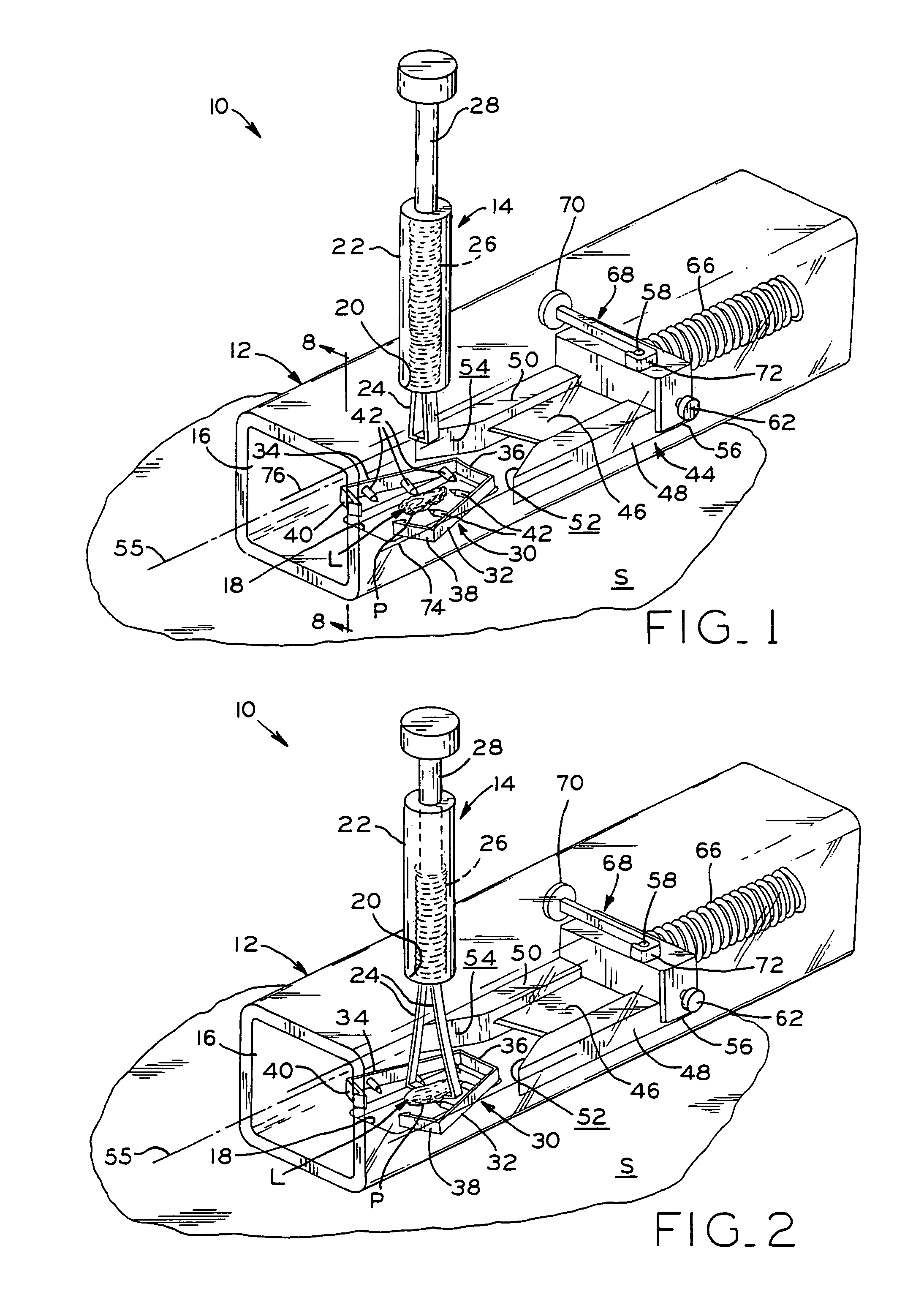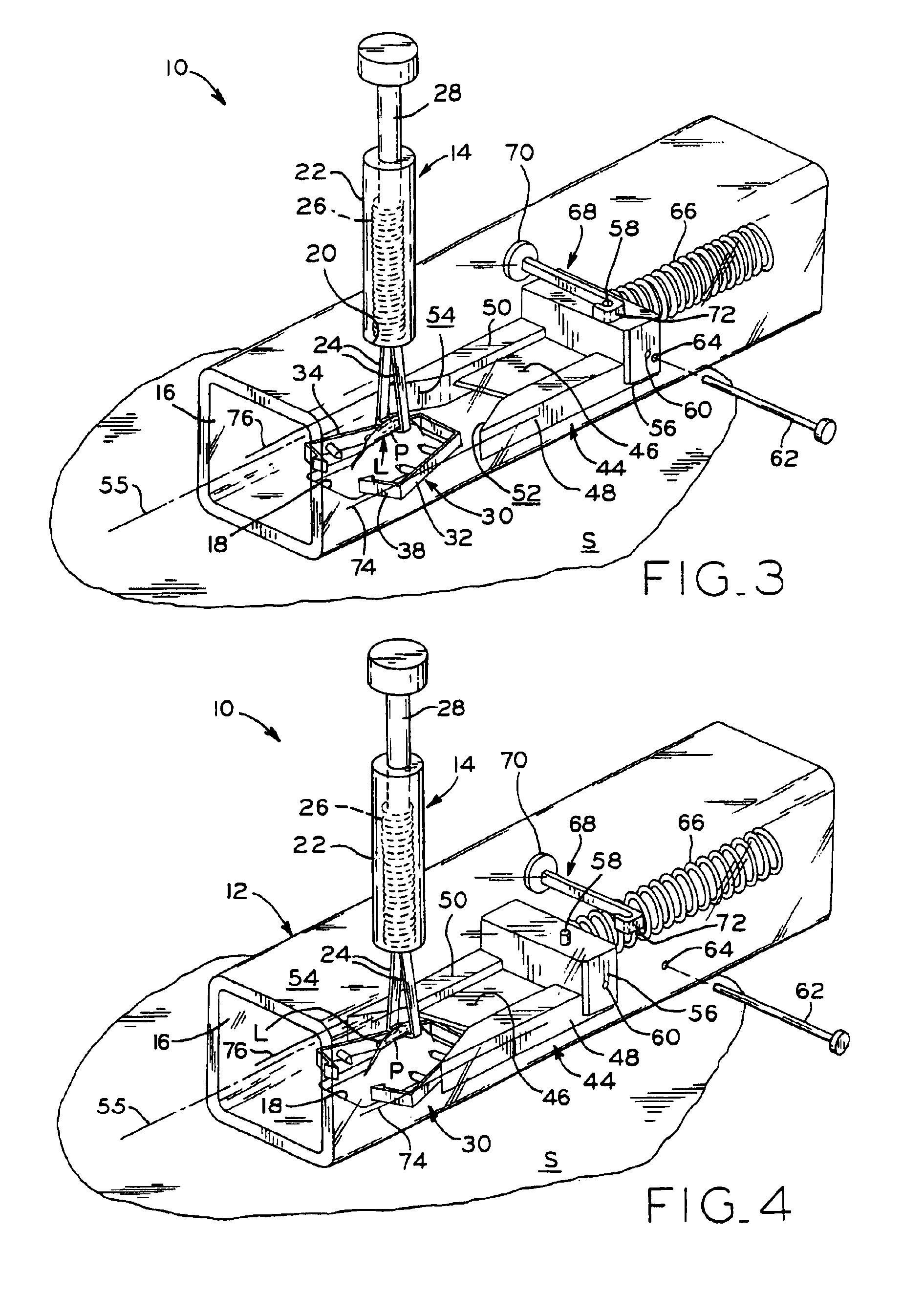Skin lesion exciser and skin-closure device therefor
a skin lesion and exciser technology, applied in the field can solve the problems of time-consuming and inconvenient, inability to follow up with skin screening, and awkward methods of skin lesion excision, and achieve the effect of safely and effectively excised
- Summary
- Abstract
- Description
- Claims
- Application Information
AI Technical Summary
Benefits of technology
Problems solved by technology
Method used
Image
Examples
first embodiment
[0091]FIG. 1 shows exciser 10, the present invention which includes base assembly 12 and separable forceps assembly 14. It is envisioned that exciser 10 may be a single use device, all or part of which may be discarded after a lesion has been excised therewith.
[0092]Base assembly 12 includes transparent, elongate plastic housing or frame 16 which, as shown, has the shape of a parallelepiped. It is envisioned, however, that housing 16 may be of any suitable shape. The lower side of housing 16, that side which, in use, lies against skin S of the patient, is provided with rectangular first aperture 18 which frames lesion L to be excised. At a location directly opposite first aperture 18, the upper side of housing 16 is provided with circular second aperture 20 into which the end of cylindrical body 22 of forceps assembly 14 is inserted.
[0093]Forceps assembly 14 further includes forceps or tweezers 24 having a pair of elongate, separable, somewhat flexible arms which are retractable int...
second embodiment
[0106]Referring now to FIGS. 9-21, there is shown exciser 100, the present invention which was prototyped and successfully used in animal experiments.
[0107]Exciser 100 comprises first applicator block 102 and second applicator block 104. Disposed between the applicator blocks is blade assembly 106. Guide rods 108 are fixed within bores 110 provided in first applicator block 102 and slidably extend through bores 112 in second applicator block 104. First and second applicator blocks 102 and 104 may be made of a polymeric material such as nylon, for example.
[0108]Blade assembly 106 comprises block portion 114 and blade 116. Block portion 114 is made of a material similar to that of applicator blocks 102 and 104, and blade 116 is surgical steel or suitable plastic material, like blade 46 of first embodiment exciser 10. Blade 116 is attached to block portion 114 through means of fastener 120 or by any other suitable means. Guide rods 108 slidably extend through bores 118 provided in blad...
third embodiment
[0120]Referring now to FIGS. 22-27 there is shown exciser 200, the present invention which is formed of elongate first and second halves 202 and 204, each respectively having a handle portion 206, 208 and a jaw portion 210, 212. First and second halves 202 and 204 are pivotally joined together through rivets 214 to form a basic structure similar to an ordinary pair of pliers or clippers. Formed in first and second halves 202 and 204 is central recess 216, in which is disposed barrel 218. Barrel 218 has the general form of a parallelepiped having closed sides and open ends. Opposite sides of barrel 218 are provided with holes through which rivets 214 extend, thereby securing barrel 218 to the rest of exciser 200. Extending through the open ends of barrel 218 are integral tweezers or forceps 220 comprising first and second flexible arms 222 and 224. Arms 222 and 224 are fixed together at attached end 226 of tweezers 220. Fixed to attached end 226 are short rods 228 which are separated...
PUM
 Login to View More
Login to View More Abstract
Description
Claims
Application Information
 Login to View More
Login to View More - R&D
- Intellectual Property
- Life Sciences
- Materials
- Tech Scout
- Unparalleled Data Quality
- Higher Quality Content
- 60% Fewer Hallucinations
Browse by: Latest US Patents, China's latest patents, Technical Efficacy Thesaurus, Application Domain, Technology Topic, Popular Technical Reports.
© 2025 PatSnap. All rights reserved.Legal|Privacy policy|Modern Slavery Act Transparency Statement|Sitemap|About US| Contact US: help@patsnap.com



